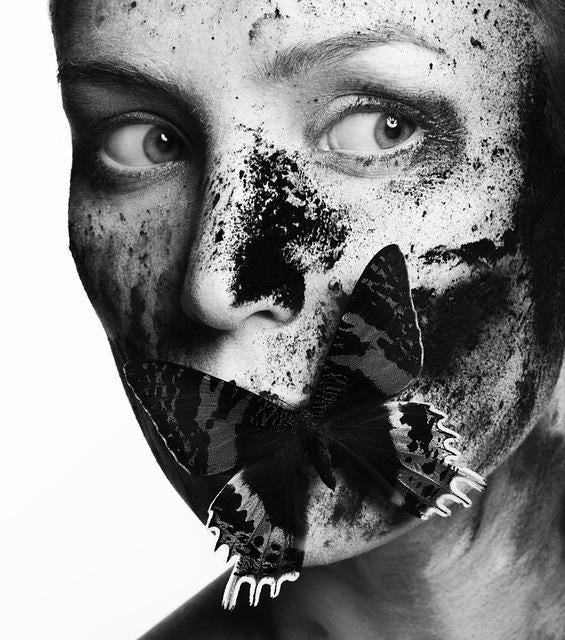Creating The Webbd Wheel: Secrets and Toxic Shame
In which we might choose to reveal ourselves ...
If someone were to ask me if any of my characters are autobiographical, I’d say, “Yes, absolutely,” and “No, not at all.” There is no clean dividing line between my psyche and my creative work. Parts of me are in all my characters, but they live and breathe on the page in their own right. None of them are me. Likewise, many of the characters were written with a specific person in mind, either physically or in terms of personality, but that’s only my impression and experience of those real people. I can never know more than a shadow of even those I most love.
However, the experience of being human is something we all have in common, and most of us know something about toxic shame and secret keeping.
Shame, according to Oxford Online Dictionary, is “a painful feeling of humiliation or distress caused by the consciousness of wrong or foolish behavior.”
Toxic shame is the feeling we’re worthless. The feeling doesn’t pass. There’s no help or remedy, no hope we can ever be “fixed.”
I’ve lived with toxic shame for most of my life. It’s an excruciating burden to carry. I suspect it frequently lies at the root of addiction, suicide, depression, and anxiety.
One of the hardest things about shame is keeping it secret. We have to keep it secret because, you know, we’re so ashamed. We don’t want anyone to know how truly bad and ugly we are. Unfortunately, if we do manage to keep our shame a secret we don’t find relief, because then we’re ashamed of living a lie – pretending to be a worthwhile person when we know we’re not. When someone pays us a compliment, we wince, feeling like an imposter. If only they knew …
A strong theme in many oral traditions is secret keeping. The Greeks had Pandora and her box, which she was instructed not to look inside. Stories from every tradition explore the tension of secrets and the consequences of exposing them.
Secrets invariably come to light. Often a character in the old stories disregards the warning not to look. Sometimes an accident uncovers the hidden thing. But one way or another, they always come to light. Shame is a hard thing to hide. Our behavior invariably gives us away eventually, and Rose Red is no exception, as we see in post #37.
When we keep secrets out of shame, we collude in our own disempowerment. As soon as a hidden thing is exposed, we regain some power. We may have to endure embarrassment and/or different kinds of consequences, depending on the hidden thing, but it loses its power to hold us hostage. Many times I’ve discovered my deepest shame, exposed to the light and air and a trusted friend, is a mouse rather than a monster.
I explore toxic shame via several characters in my writing. Rose Red may be the closest to my heart, though. Her sense of being bad because of her natural needs and desires is my own, as well as her feeling of alienation because of her sensitivity, and her loneliness. She’s a secret keeper. She suffers in silence, though people around her love her, understand her, and support her. Still, her shame is deep-rooted and she doesn’t find it easy to reach out to others when she’s struggling.
Toxic shame and secrets go hand in hand. At this point in my life, when I realize I’m hiding something from someone, I make efforts to uncover the shame involved and expose it. Even if I don’t feel particularly supported, just choosing to reveal my thoughts, feelings, and experience is empowering, and immediately reduces my big, bad, life-and-death secret to the kind of challenges and struggles we all face every day. It’s only big in my head, behind my eyes, behind my lips. My secrets are not worse than anyone else’s. A lot of my shame is only in my own head. Most people in my life look at me and see a perfectly normal woman, neither much worse nor much better than anyone else.
At this point in my life, toxic shame is a habit, and I can choose to give it no energy.
(This essay was published with post #37 of The Hanged Man.)



